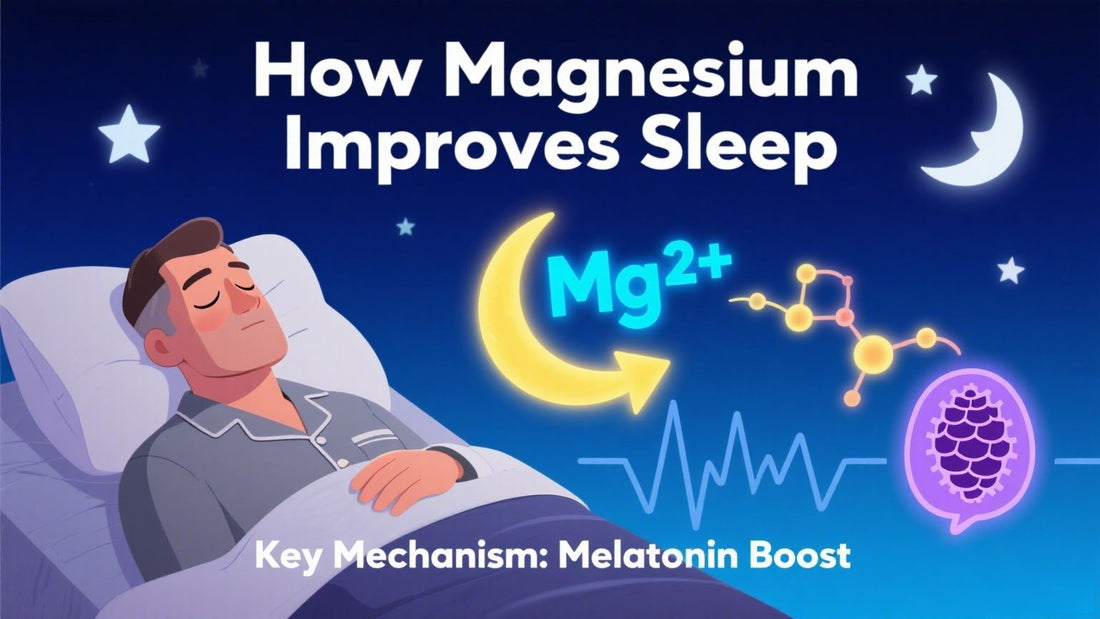Can Magnesium Actually Fix Your Sleep Woes? Here's the Real Deal

Hey there, sleepless friend—ever been stuck wide awake at 2 a.m., asking yourself, “does magnesium help you sleep?” If insomnia, waking up in the night, or just plain tossing and turning are your nightly routine, you're definitely not alone. Studies show over 50 percent of Americans aren't getting solid shut-eye.
So what's the buzz about magnesium? Well, this mineral is known as a “relaxation mineral”—and for good reason. It helps your brain hit the brakes on stress by balancing calming neurotransmitters like GABA, while dialing down excitatory ones. It also supports your body's melatonin production, that hormone that whispers “time to snooze” when the lights go out.
All that sounds promising, but what does the science say? There have been some small but solid studies. For example, magnesium supplements helped older adults fall asleep faster, sleep more efficiently, and ease early-morning wake-ups. Another trial found that adults taking magnesium reported better sleep quality, improved mood, and even feeling more mentally alert during the day. That said, most of these studies are small and more research is needed—but hey, the results so far are encouraging.
Now, before you head to your pantry, let's talk food. Sure, leafy greens, nuts, beans, whole grains, even dark chocolate are natural sources of magnesium. But here's the catch: due to poor soil quality and our heavily processed diets, many Americans aren't hitting the RDA (about 310–320 mg for women, 400–420 mg for men). Even combining spinach, quinoa, and almonds (yummy as that sounds) might still leave you short if you're under high stress or dealing with sleep issues.
That's where supplements come in. The most sleep-friendly forms? Magnesium glycinate and L-threonate are popular because they're gentle on your stomach and may even cross into your brain to support sleep better. Experts often recommend 200–500 mg at bedtime but always say “check with your doctor first”—especially if you have kidney issues or are on meds.
Here's how you could weave magnesium into your nightly routine: dim the lights, unplug your phone for a “digital sunset,” maybe sip some chamomile tea, and then take your magnesium supplement about 30–60 minutes before lying down.
In short? If you've tried everything—good sleep hygiene, screen cut-off, relaxing rituals—and still find yourself Googling “does magnesium help you sleep,” then magnesium may be worth a try. It's low-risk, widely available, and may just be the natural edge your overactive brain needs to finally let go and drift into dreamland.
Sweet dreams await.
